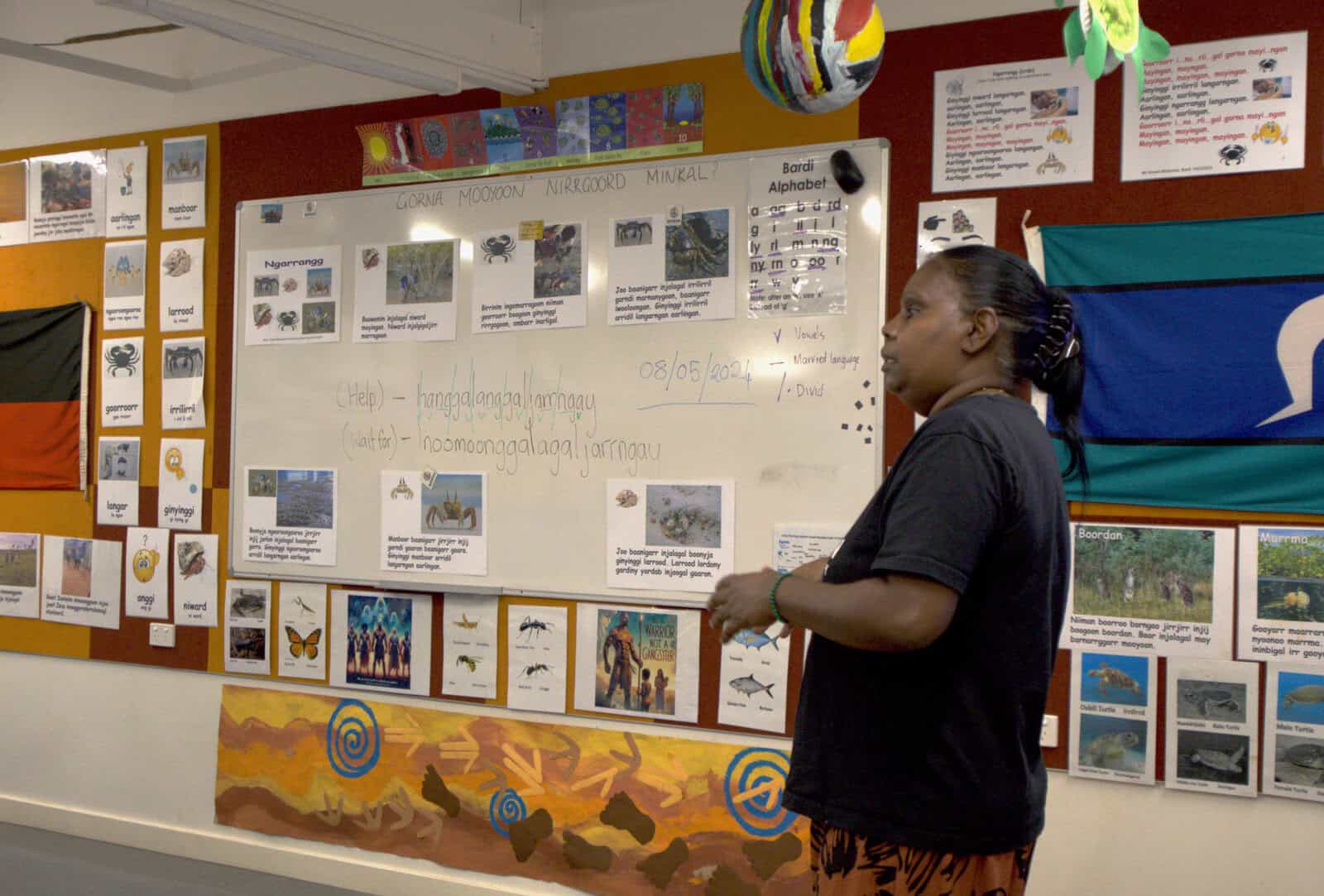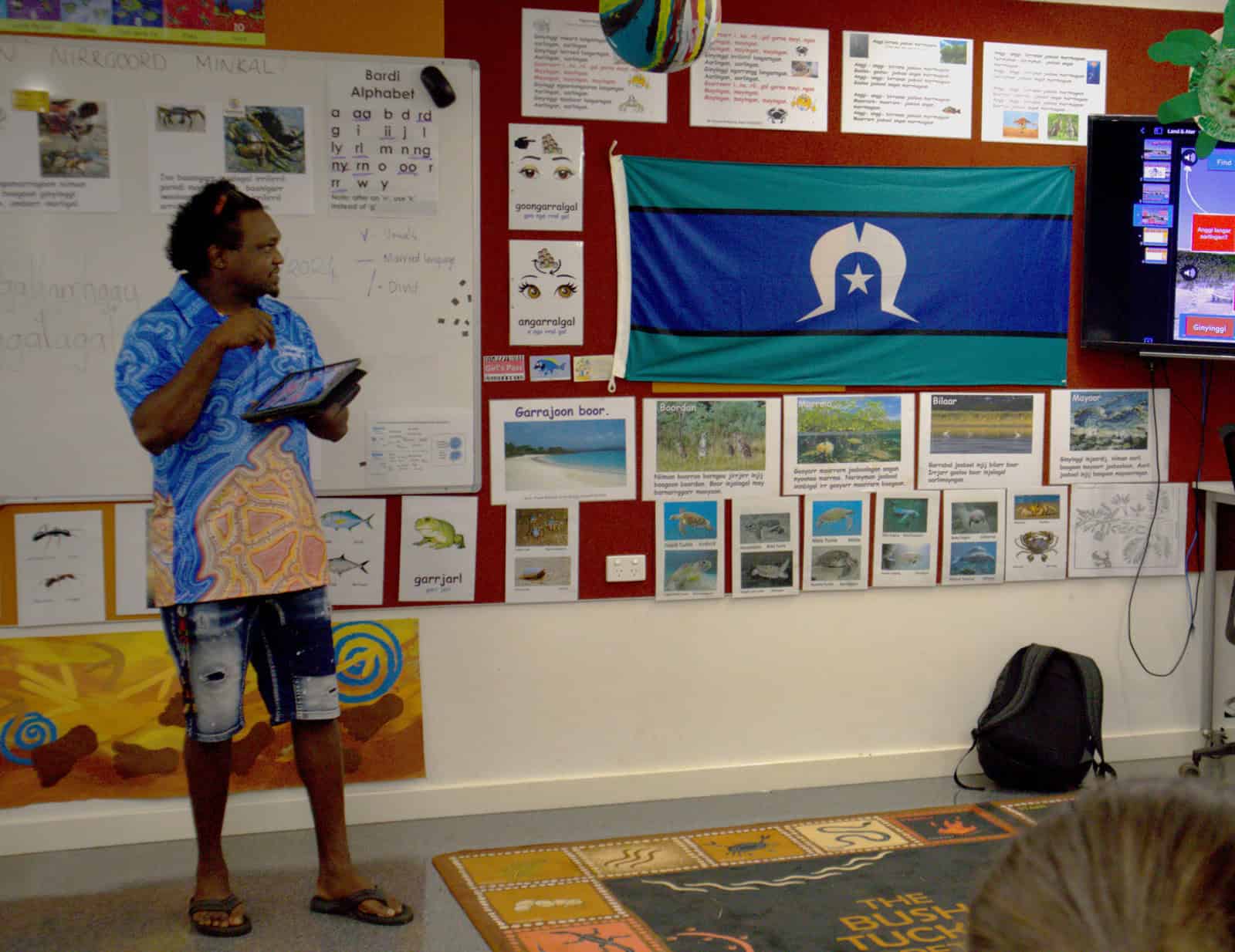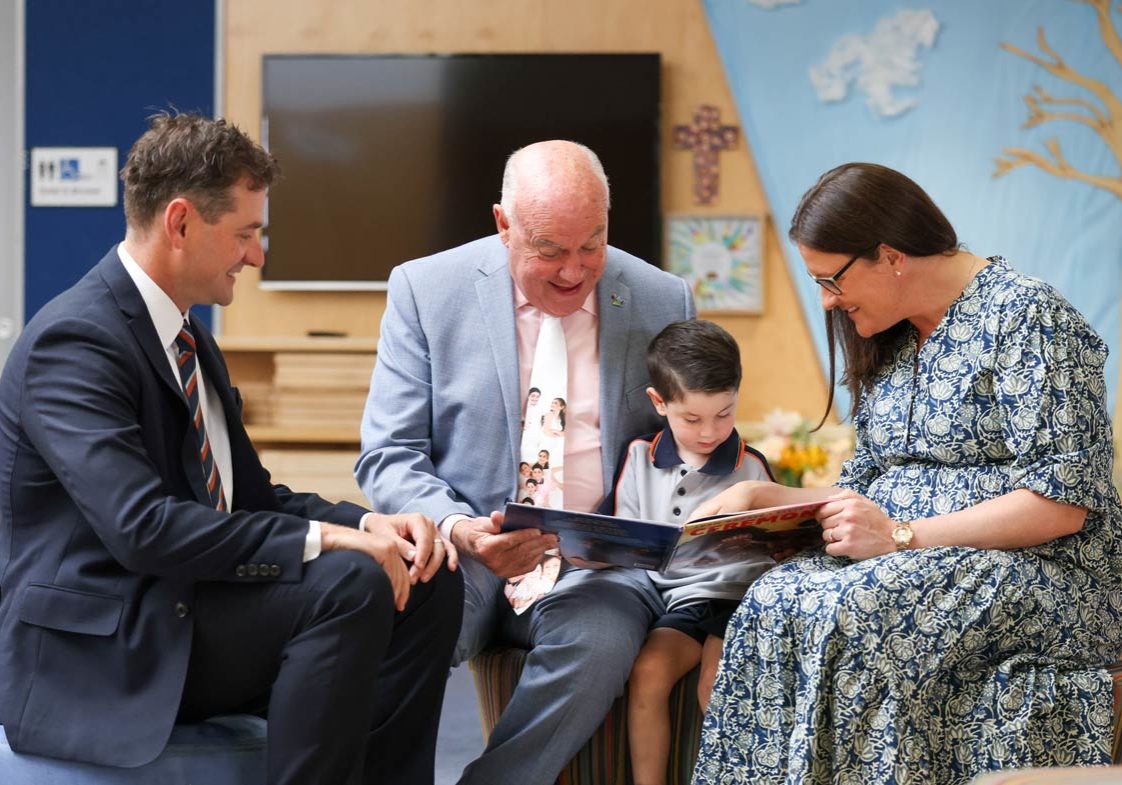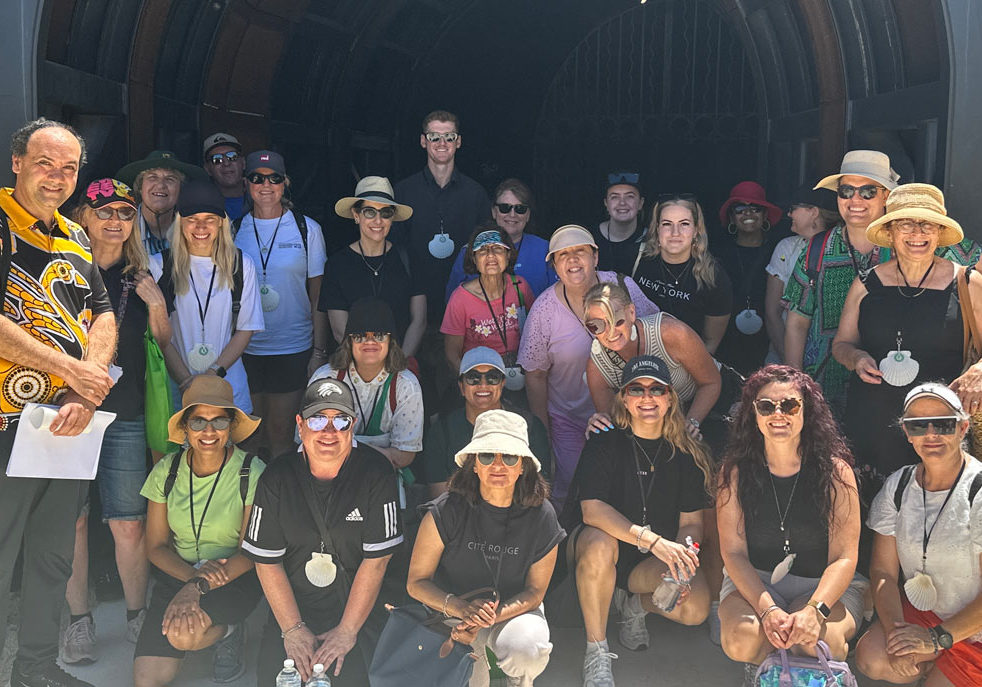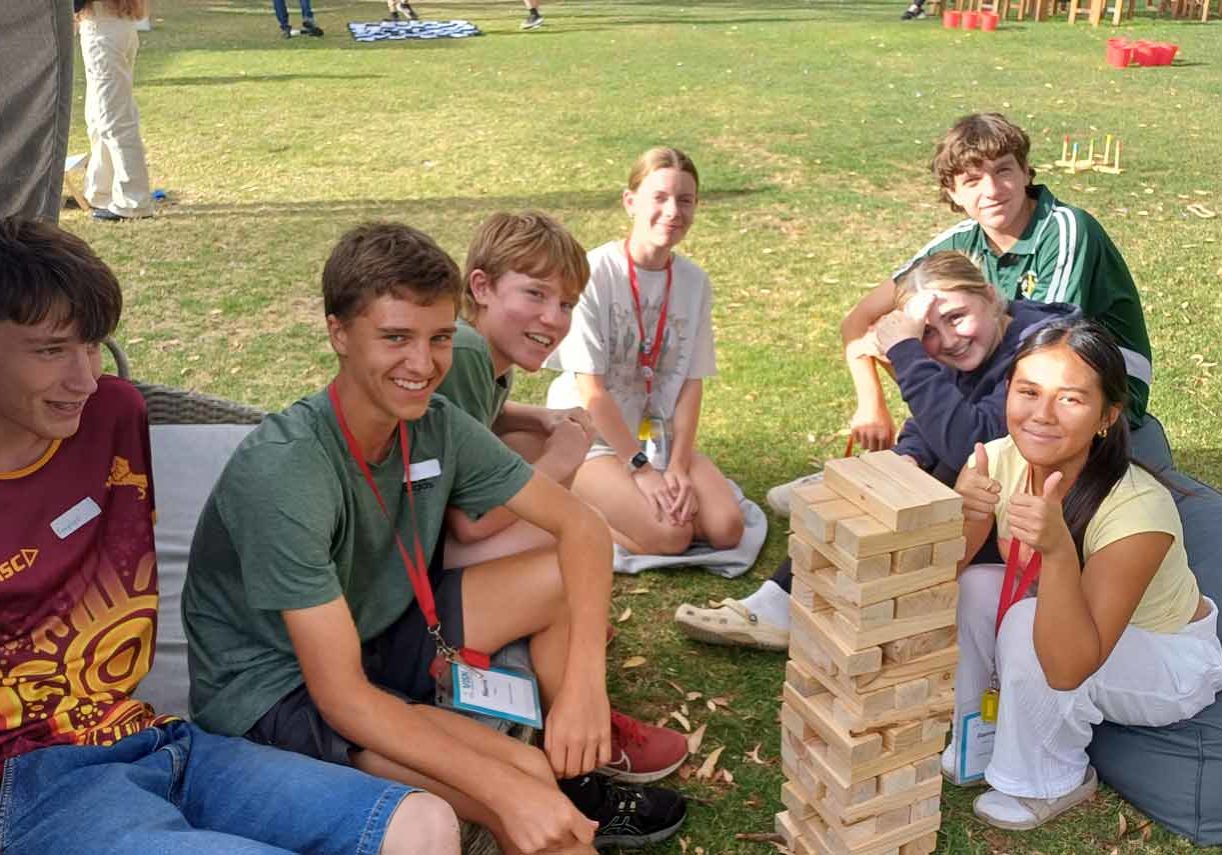Christ the King leading the way in preserving and celebrating Bardi culture
27 June 2024
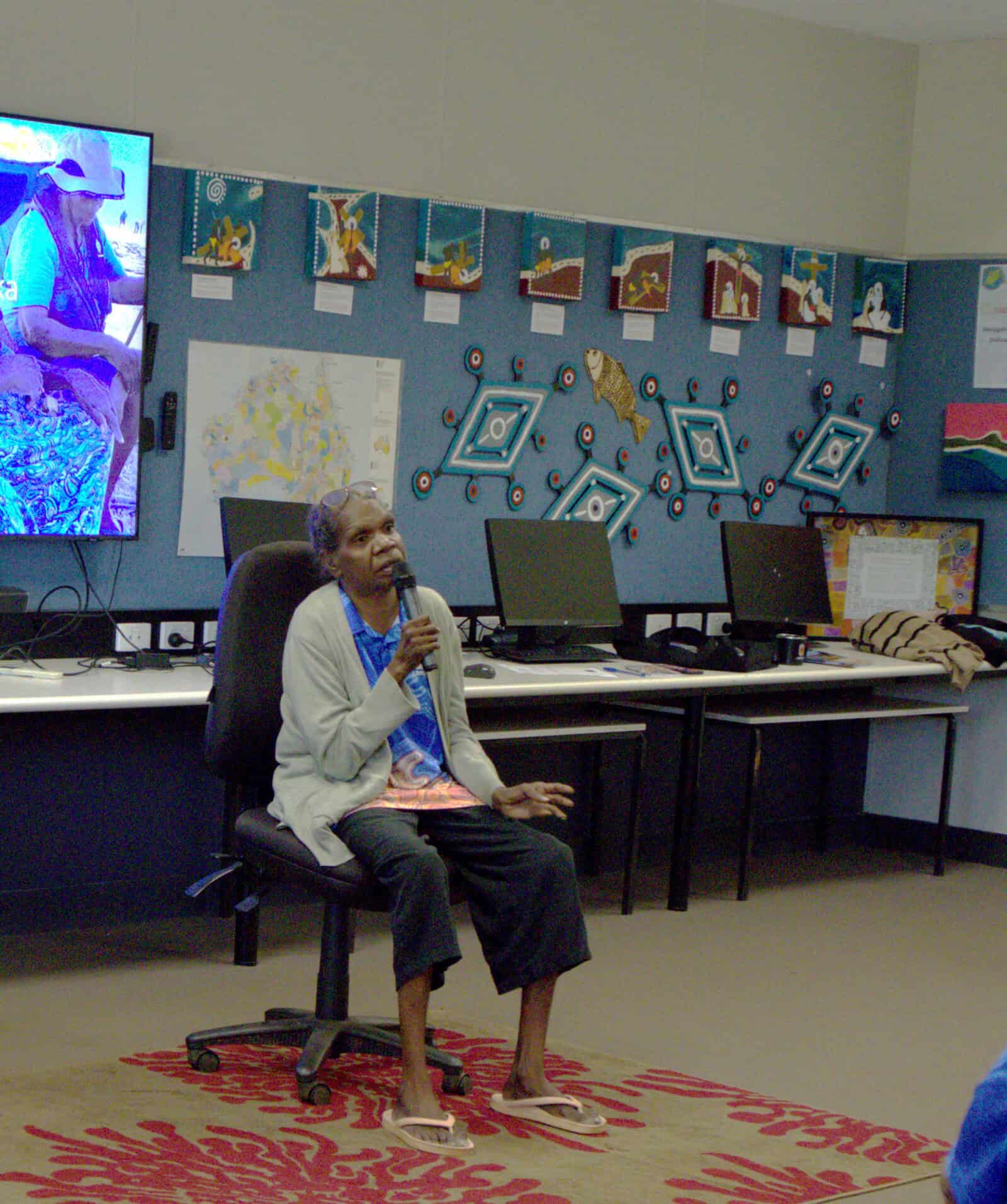
An ongoing Language Cultural Immersion curriculum, which uses engaging ‘on-country’ contexts passed down by community Elders, and aims to preserve and promote Bardi traditions, has this month, been celebrated as part of a three-day event hosted by Christ the King Catholic School.
The ‘West Kimberley Language Gathering,’ attended by over 100 delegates, was held from 18-20 June.
The Gathering was designed and delivered under the gentle guidance of Vincent McKenzie, a custodian and leader of the revitalisation of the Bardi language and Cultural Leader, and staff mentor Mena Manado. Vincent and Mena received the Kate Mullen awards for Educational Excellence in 2020 and in 2022 Mena won the prestigious NATSICC Award for her contribution to culture and community.
Themed ‘The Time is Now,’ participants travelled to Djarindjin Community where they learned about the on-country language, teaching language and the awakening sleeping languages (story time), as part of the program.
Bardi Language is taught to students from the Early Years through story and play. Principal Sharon Le Ray has mentored, encouraged, and challenged her staff to step up and become “the experts in the classroom” and revitalise and preserve the rich Bardi language and cultural traditions that make the saltwater people of the Dampier Peninsular so special in such a spiritually significant place.
“Our school vision and values place language, culture and religion at the heart of all we do ‘“to be free in God’s Kingdom” – as the way forward. A freedom to recognize the power that language and culture must effect positive educational and social change,” Sharon said.
“We have a responsibility to make sure our Bardi language and cultural traditions are passed on to our young people for generations to come to give them a sense of identity and belonging. Around 10 years ago, language and culture were not encouraged this way – but we are determined to change that notion. Today, we embrace and celebrate cultural identity in all its many forms.
“The school has extended the translanguaging approach in acknowledging first languages of our students in the early years and encourages speaking and expression of this to develop in two-way approach in improving their literacy development.”
Sharon added that the College offers extended language teaching to include adults in the community introducing Adult Community Classes, every Tuesday afternoon. The Visual Arts and dance also play a significant role in the creation of beautiful cultural art and dances designed to tell stories about the sacred and spiritual and the long tradition of mission history that has helped to shape so many of the early shared experiences of our community members.
The school is currently working with the Language Acquisition Program (LAPS) and involved with Curtin university school of Education in a translanguaging , and conceptual play research project aimed at improving and understanding of how literacy is delivered in early years and the importance of first language.
Sharon explained that plans for the College in Term 2 include the first gathering of the Dampier Peninsular Aboriginal Educational Team which aims to see three schools on the Peninsular work collaboratively in the culture and language space.
“This is an opportunity for our Aboriginal teachers to network, share best practice and organize language and culture events together for all year levels that extend along our peninsular. The teaching staff will be having a voice in school improvement, planning, curriculum and learning outcomes.”
“Students at Christ the King are also engaged in two-way math’s pedagogies supported by CEWA Math consultants where two-way teaching is used in creative ways to contextualize content in a meaningful and engaging manner for our students.”
In Term 3, Christ the King will explore two-way science with the Kimberley Land Council, land and sea management unit. This collaboration will enable students to work in a more consistent and frequent manner with the Bardi Jawi Rangers in our school and engage in on- country science projects.
“This collaboration is welcomed by our school as we have created our own Junior Djarindjin Rangers Program ready to begin in Semester 2. This will be offered to students who show a passion for culture and language. They will be invited to work with designated Rangers/Elders in our community and gain accreditation in nominated areas. The aim for this Program is for it to be developed as an endorsed program and operate as a viable pathway for students to enter the Senior Rangers program.”


